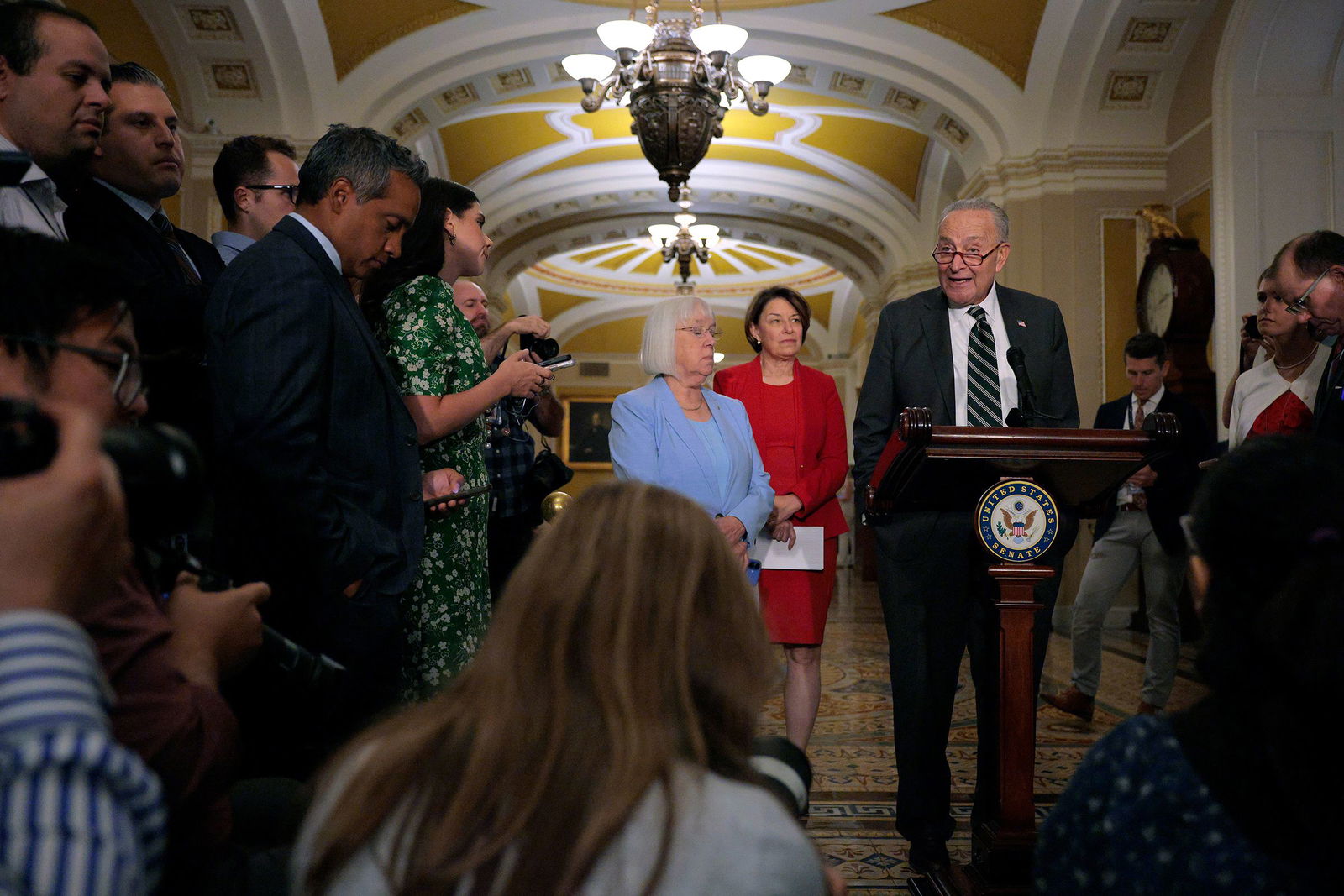Senate Democrats have embarked on a remarkable legislative maneuver, invoking a nearly century-old and seldom-used law to compel the Department of Justice to release an extensive trove of documents related to the Jeffrey Epstein case. This audacious gambit represents the latest push by lawmakers to maintain focus on a highly sensitive issue, particularly as Congress prepares for its August recess.
The core of this effort is a new letter dispatched to Attorney General Pam Bondi. Signed by Senate Minority Leader Chuck Schumer and his Democratic colleagues on the Senate Homeland Security Committee, the correspondence specifically demands the unsealing of all files pertaining to Epstein, encompassing audio, video, and any other pertinent materials. The senators have set a firm deadline of August 15 for the Department of Justice to comply, further requesting a briefing no later than August 29.
This procedural tool, rooted in a law almost 100 years old, grants five or more members of the Senate Homeland Security Committee the authority to request information from the administration, even when their party is in the minority and lacks traditional subpoena power. However, the law’s infrequent application raises significant questions about its ultimate efficacy in forcing the production of the demanded Jeffrey Epstein files.
Expectations are that the Department of Justice will resist this congressional pressure. Sources familiar with the department’s internal deliberations suggest non-compliance is likely, which would inevitably trigger a protracted legal battle. Senate Majority Leader John Thune has already indicated that the matter remains under review, predicting that Schumer’s aggressive move will indeed lead to an extended court fight over these critical documents.
Democrats have been strategically working to keep the controversy surrounding the Epstein files at the forefront of the national political discourse. They view the ongoing dispute as a crucial test of transparency for the current administration. Beyond the Senate, similar pushes have been observed in the House, where an Oversight subcommittee recently voted along bipartisan lines to subpoena the Epstein materials, underscoring a broader, cross-chamber effort to gain access to the information.
Senator Schumer has unequivocally stated that this is not a symbolic gesture but “a formal exercise of congressional power under federal law,” emphasizing the expectation of a response from the Department of Justice by the specified deadline. Connecticut Democratic Sen. Richard Blumenthal, a signatory to the letter, echoed this sentiment, asserting that the letter “has the force of law” and is necessary because the administration is “stonewalling and stalling and concealing.”
Intriguingly, the Democrats’ initiative runs parallel to various Republican efforts aimed at compelling the administration to release additional material related to the case. Despite some internal pressure within the GOP for greater transparency, House Speaker Mike Johnson has expressed reservations about what he terms “haphazard” efforts from within his conference, instead throwing his support behind a non-binding resolution that encourages the release of the files.
Johnson affirmed his alignment with President Donald Trump’s desire for “transparency” on the issue, though he refrained from outlining specific House actions. He emphasized his personal conviction: “I want everything to come out about the Epstein evils that is possible to be released because the people that were involved in those unspeakable evil acts should be punished.” This bipartisan demand for information underscores the national gravity of the Epstein case and the intense public desire for full disclosure and accountability.






Leave a Reply